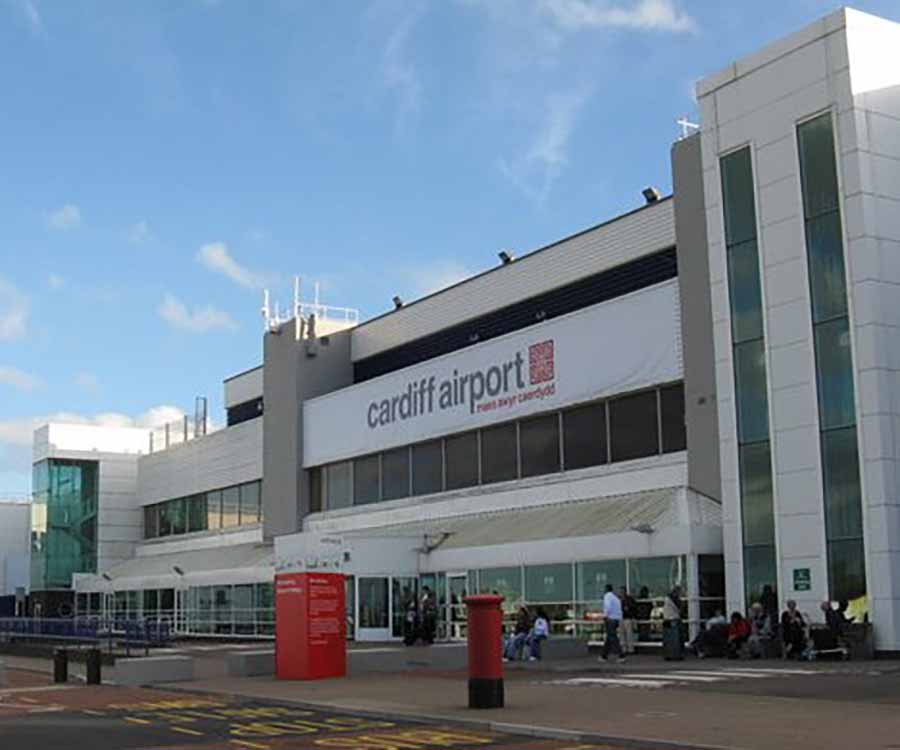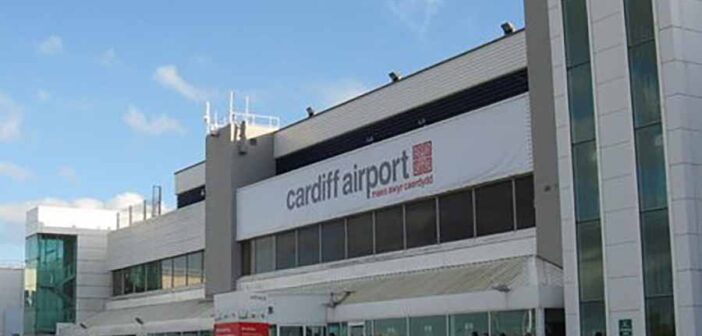
Cardiff Airport (CWL), the primary international gateway to Wales, welcomes around 1.5 million passengers annually, offering a compact and efficient hub for travellers. Located 19 kilometres southwest of Cardiff city centre in Rhoose, the airport connects to over 50 destinations across Europe and beyond, with airlines like Ryanair, TUI Airways, and KLM operating regularly. Its single-terminal design ensures a hassle-free experience for those exploring Wales or connecting to major European cities.
Accessing the airport is convenient, with multiple transport options linking to Cardiff. The T9 bus service, operated by Cardiff Bus, runs every 20 minutes from the city centre, taking about 40 minutes to reach theterminal for €2.50. The nearby Rhoose Cardiff Airport railway station, a 10-minute walk or free shuttle ride away, offers hourly trains to Cardiff Central, costing €3.50 and taking 30 minutes.
Taxis, available outside the arrivals hall, provide a 25-minute ride to the city for €30 to €40, while ride-hailing apps like Uber offer similar fares. Drivers can use the short-stay car park opposite the terminal or budget lots, with rates starting at €5 per day and a free 20-minute drop-off zone. Car rental agencies, including Enterprise and Avis, are located in the arrivals area. Passengers should arrive two hours before flights to account for check-in and security.
The airport’s single-terminal layout is simple, with check-in desks, arrivals, and departures all on the ground floor, and a lounge and additional dining on the first floor. Featuring 20 check-in desks and six gates, the terminal is divided into Schengen and non-Schengen zones, with clear signage keeping navigation quick. Peak summer periods can lead to congestion at security, particularly during morning departures, with waits sometimes reaching 30 minutes due to limited screening lanes. Baggage claim delays, occasionally caused by staffing shortages, may also occur, so passengers should check flight updates via the airport’s website or in-terminal displays.
Dining and retail options are modest but sufficient, with choices concentrated in the departure lounge. The Beer House and Cafe Ritazza offer snacks, coffee, and light meals, while The Cambrian serves Welsh-inspired dishes. Duty-free shopping is available airside, alongside a small selection of stores selling travel essentials and local souvenirs, though prices are higher than city averages, with a sandwich costing around €5. The Executive Lounge, open to all passengers for €17.50, provides Wi-Fi, snacks, and runway views. Limited seating in dining areas during peak times suggests eating before security.
Facilities cater to essential needs, with free Wi-Fi available for two hours. Charging points, ATMs, and currency exchange are present, but luggage storage is unavailable, with wrapping services offered instead. Accessibility is well-supported, with ramps, lifts, and assistance for passengers with mobility needs, bookable 48 hours in advance. Other amenities include a children’s play area, baby-changing facilities, and a quiet room for relaxation. The Holiday Inn Express, a short walk from the terminal, offers convenient accommodation. Designated smoking areas are outside the terminal.
On-time performance is generally reliable, with the airport’s smaller scale minimising congestion. Delays are often linked to airline-specific issues, such as equipment problems, or weather conditions like fog, common in the Vale of Glamorgan. Recent social media posts mention occasional delays at passport control for non-Schengen flights, particularly during summer. Passengers can monitor updates via Flightradar24 or in-terminal screens. As a regional hub, Cardiff offers limited connections, primarily through KLM’s Amsterdam route, with a minimum transfer time of 45 minutes. The single-terminal setup simplifies transfers, but passengers on separate tickets should verify luggage policies to avoid rechecking bags.
Cardiff Airport’s compact design, proximity to the city, and essential amenities make it a practical choice for travellers. Ongoing improvements, including eco-friendly initiatives and expanded routes, aim to enhance the passenger experience. While limited dining and peak-time queues pose challenges, the airport’s accessibility and services ensure a pleasant journey to and from Wales.
Ryanair
Ryanair operates flights to Dublin on Mondays, Tuesdays, Thursdays, Fridays, Saturdays, and Sundays, operating from the main terminal, with check-in desks typically desks 1–10. Passengers should check airport screens for exact assignments. Bag drop desks are open 2 hours to 40 minutes before departure.
Flights to Ireland (Dublin) typically depart from gates 1–6 in the main terminal. Gates are announced on departure boards.




